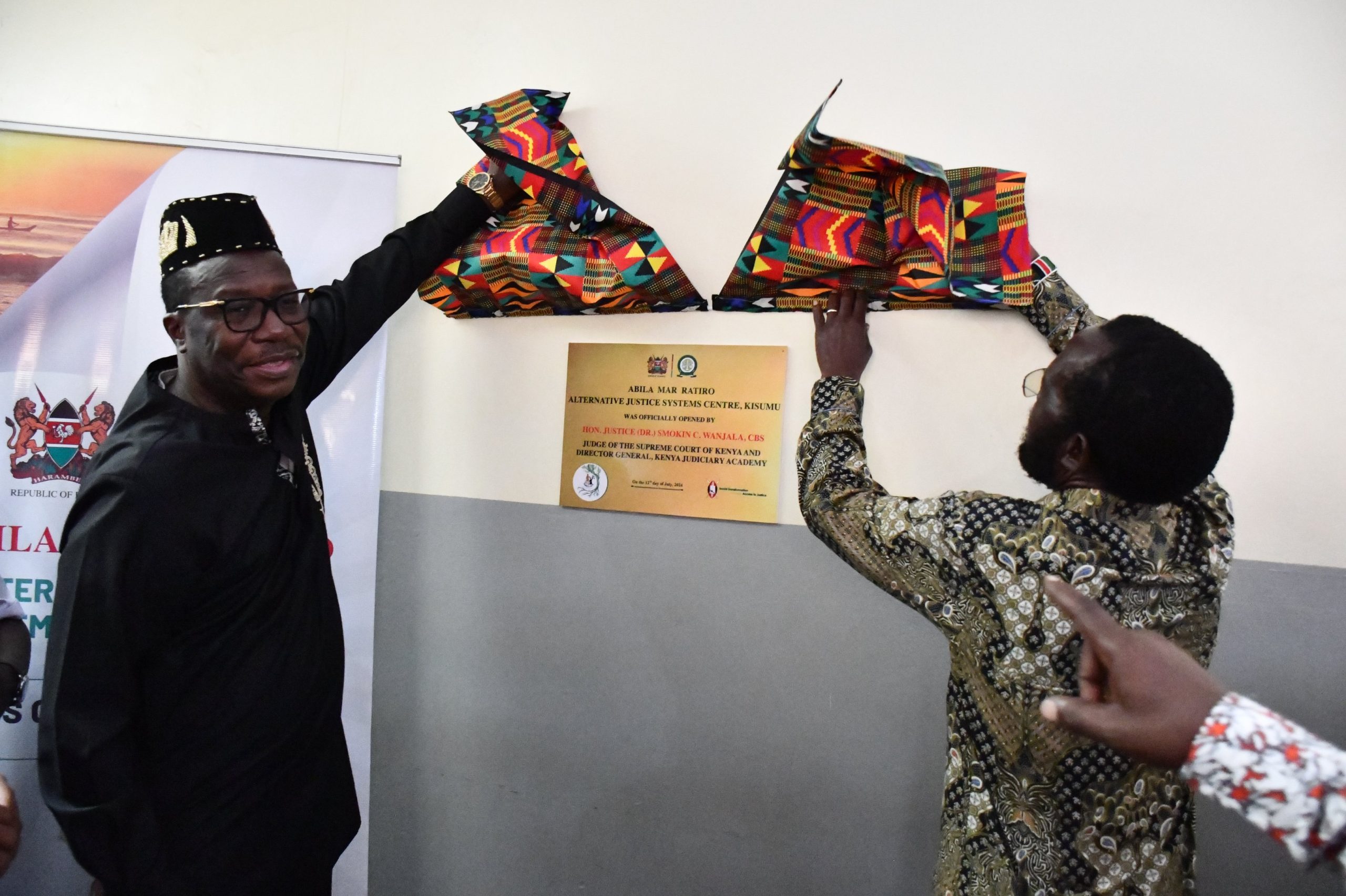The Judiciary has unveiled the Alternative Justice Systems (AJS) suites and a court in Kisumu County to facilitate access and promote people-centred justice.
Speaking during the launch, Supreme Court Judge and Director Kenya Judiciary Academy (KJA) Dr Smokin Wanjala observed that Alternative Justice Systems had long been used to resolve disputes within Kenyan communities but due to colonial disruptions, the systems were delinked from formal justice systems and relegated to inferior status.
“Against this backdrop, and with the industry of AJS champions, practitioners, civil society actors and various interfaith organizations, the adoption of the AJS Policy Framework (2020) was a key milestone, ”said Justice Wanjala.
The Judge noted that the AJS Policy provides an understanding of informal and traditional justice systems, their mandate and how they may be used to enhance access to justice and increase the civic autonomy of citizens. In addition, he said it provides standardized mechanisms for cross-referencing of cases from courts to AJS and vice versa.
Justice Wanjala reiterated that the principle of AJS was entrenched in the current judiciary blueprint, Social Transformation through Access to Justice (STAJ) which explicitly embraces the multi-door approach to access to justice.
“The multi-door approach encourages the use of AJS as the first port call in instances where it is most suited to resolve a wide array of disputes,” said Judge Wanjala.
The Supreme Judge said that the recognition and promotion of alternative justice mechanisms had brought significant changes for citizens access to justice, and justice seekers have benefitted from meaningful home-grown solutions befitting the Kenyan context as demonstrated by the success stories in Isiolo, Samburu, Kajiado and Nakuru which had already launched AJS.
Justice Wanjala opined that to resolve the substantial justice gap of 19% consisting of Kenyans who do not have access to justice at all, the time was ripe to conduct multi-stakeholder engagements and create awareness and increase access to justice platforms for the Kenyan people.
Speaking during the launch, Kisumu County Governor Prof Anyang Nyong’o acknowledged the critical role played by the AlternativeJustice System in accelerating the wheels of justice, by providing complementary mechanisms that are more accessible, culturally relevant, and community-oriented.
He noted that traditional dispute resolution mechanisms, such as elders’ councils (Barazas), community assemblies (NyumbaKumi), and customary courts (Kangaroo Courts), are deeply rooted in Kenyan culture and customs.
“They provide a familiar and culturally appropriate forum for resolving disputes, especially in rural and marginalized communities where formal legal institutions may be distant or unfamiliar,” noted the governor.
Justice Joel Ngugi who is the Chair of the national steering Committee on AJS said that County AJS Plans are a unique innovation including citizens and communities in advancing access to justice while making use of Kenya’s devolved system of governance and public participation.
“They are the first truly citizen-centric,community-led strategies in not only improving the quality and speed of justice but also in bridging the justice gap for, especially, vulnerable communities who have been historically underserved by the court system,” said Justice Ngugi.





